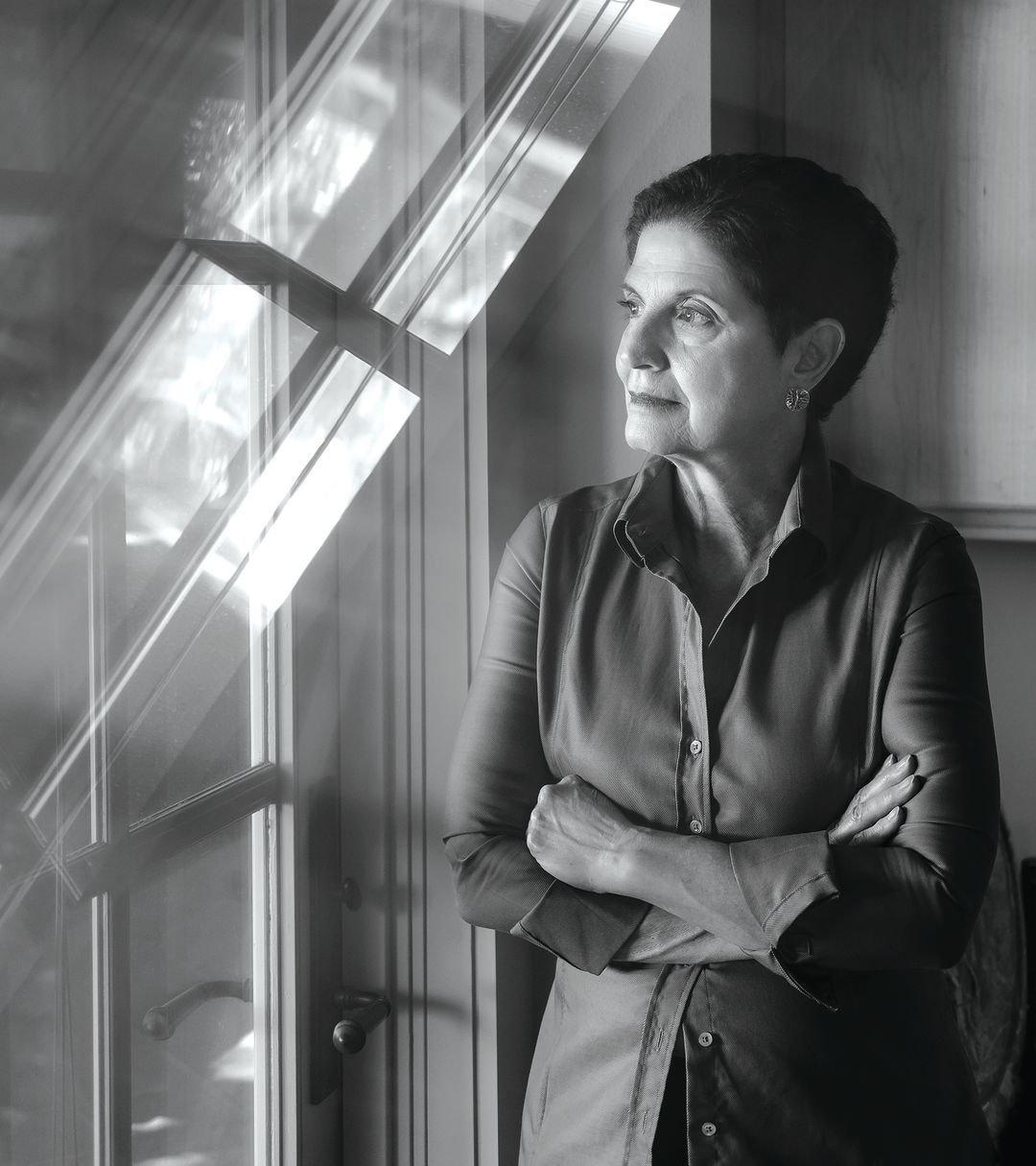Nancy Parrish Leads a National Battle Against Sexual Harassment in the Military

Nancy Parrish
Image: Evan Sigmund
Sarasota’s Nancy Parrish wants people to know that she’s a proud first-generation American whose father served in World War II, with a mother who worked in the Army as a civilian and a sister who became a Navy nurse thanks to a ROTC scholarship.
“I’m a patriot,” Parrish says. “I appreciate being an American.”
That family background makes her even more effective as a prominent face of the national organization she founded right here in Sarasota. Now based in Washington, D.C., Protect Our Defenders [POD] is the only national group solely dedicated to ending the epidemic of rape and sexual assault in the military. That epidemic made headlines again this spring, when news broke that members of Marines United had circulated thousands of photos of naked service women on social media.
Sexual harassment is nothing new in the military (or the world beyond, as the April firing of Fox News anchor Bill O’Reilly demonstrated). Back in 1991, naval aviator Paula Coughlin charged that more than 100 male officers sexually assaulted women at a Tailhook military convention in Las Vegas. Coughlin’s whistle-blowing ended her career, and today she serves on POD’s board. But Parrish’s involvement began in 2011, after a friend, Congresswoman Jackie Speier, shared letters from or about people who had been raped and dishonorably discharged after they reported the crime.
“It’s pervasive, and it has been for decades,” says Parrish, whose background as a founder and managing partner of a Southern-based political strategy and public relations consulting firm gave her insight and contacts that serve her well in her new, post-retirement role with POD. “But the issue was not part of our public discourse. I began to do some research, and I found a lot of private Facebook pages, Veterans Affairs stats, that made me aware of just how pervasive it is.”
What’s more, she says, “Perpetrators are not aggressively dealt with. The majority are high-ranking officers, and so they are believed. You have a pilot that you know personally, whose training cost $2 million, versus a $50,000-a-year airman you don’t know [making the accusation]. The system is based on chain of command, not a prosecutorial approach [as it would be in the civilian world].”
What triggered Parrish to spend 50 to 60 hours a week talking with survivors, POD donors and members of Congress, though, was the case of Terri Odom, a Navy and Army veteran who attempted suicide a number of times after being raped and left for dead by a superior who sneered, “You are not the first, and you won’t be the last.”
After that, says Parrish, “I couldn’t walk away. I had no choice. And I realized that all my life experience led me to this moment.”
After establishing POD, Parrish began her work to change the military’s policies in sexual harassment cases, to provide pro bono support from attorneys representing victims, to educate the public and, overall, to create a safe and respectful environment for members of the military. She and her staff and board members have testified before Congress, and POD was recognized by The New York Times in 2014 as “the nation’s pre-eminent advocacy group on behalf of victims of sexual assault in the military.” In 2016, Parrish was awarded the 2016 Ivan Allen Jr. Prize for Social Courage for her work.
“Congress created the code [by which military cases are handled]; they have to fix it,” says Parrish. “The secretary of defense or the president can lead here. When President Truman decided to integrate the military, or when President Obama got rid of the ‘don’t ask, don’t tell’ policy, that happened, virtually overnight. That’s what gives me hope [about reform]; they’re against it until they’re for it.”
She also notes that the military is the world’s largest employer and has tremendous social influence. “If the military can change, then that change can extend into the rest of our culture,” she says. “Change takes just three things: a leader in Washington, persistent public attention—that’s us—and then, five to eight years. We have seen reform, and we’ll see more.”
If you are interested in donating time or money to POD, or need help for yourself or someone you know who has been a victim, visit protectourdefenders.com.



